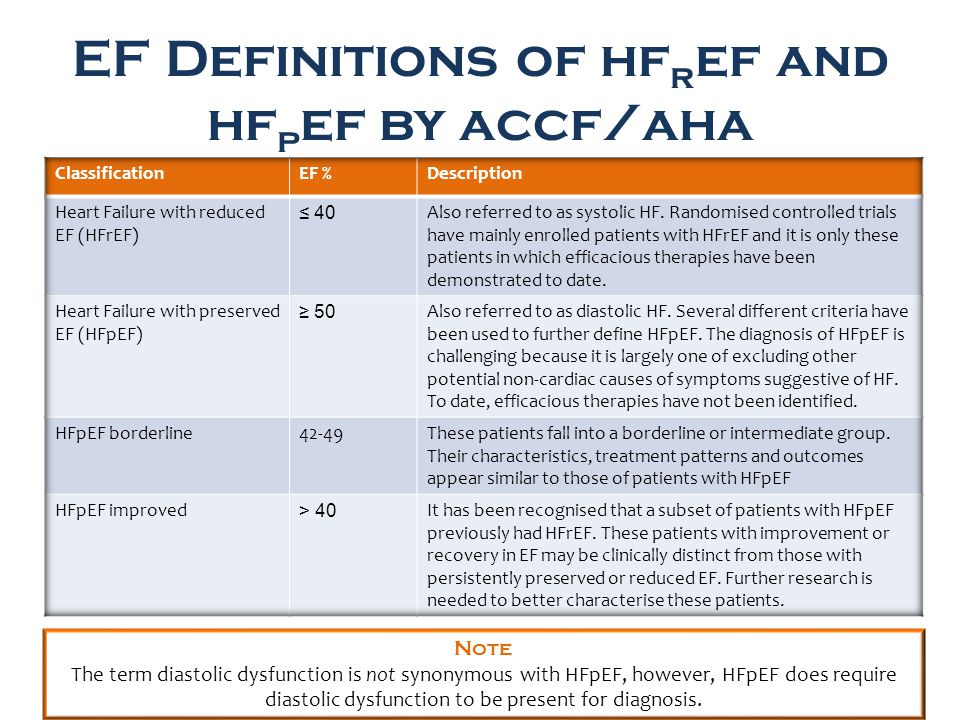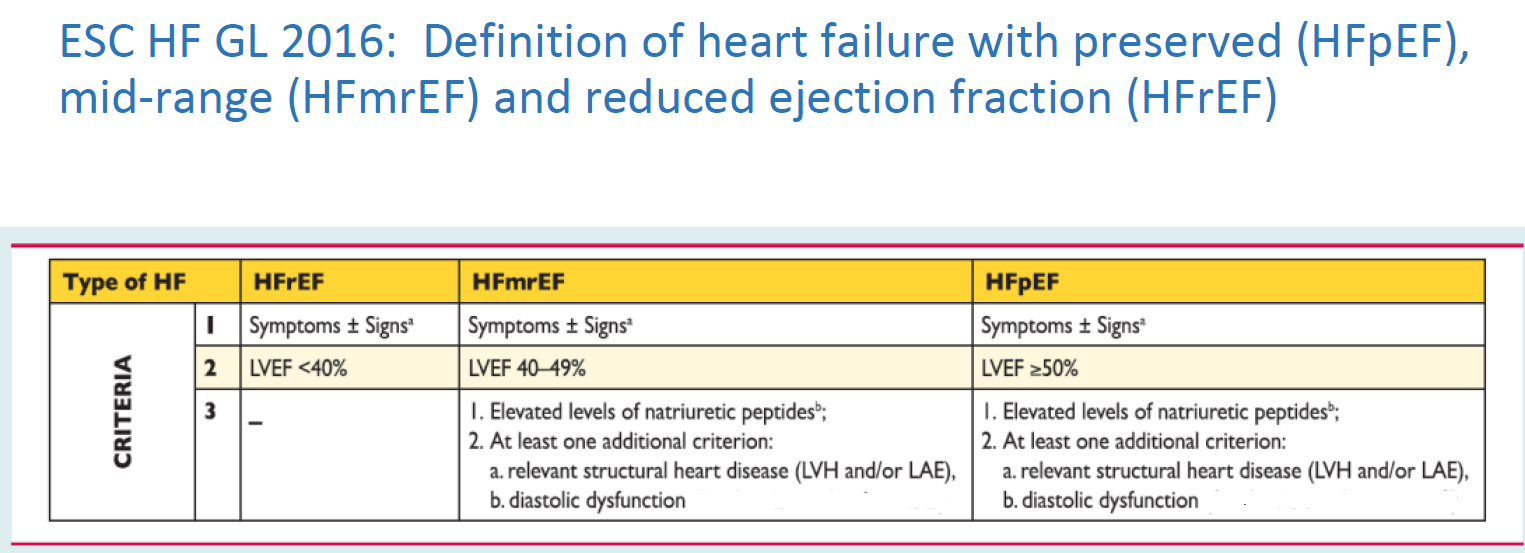Classification of heart failure based on ejection fraction - HF pef versus HF ref versus HF mref
The American Heart Association (1) and European Society of cardiology (2) are broadly in agreement with their definitions of HFpEF and HFrEF.
The diagnosis of HFpEF represents patients with signs and symptoms of heart failure, evidence of normal or preserved ejection fraction but objective evidence of other structural or functional alterations in cardiac structure
- ESC guidelines are more descriptive in terms of specifying particular markers of diastolic dysfunction and also taking into account stress testing, although both emphasize the importance of ruling out noncardiac causes of symptoms.
AHA criteria:

ESC criteria:

Heart failure with preserved, mildly reduced, and reduced ejection fraction (3)
- reduced LVEF is defined as <= 40%, i.e. those with a significant reduction in LV systolic function. This is designated as HFrEF
- patients with a LVEF between 41% and 49% have now been categorised as mildly reduced LV systolic function, i.e. HFmrEF
- analyses from RCTs in HFrEF or HF with preserved ejection fraction (HFpEF) that have included patients with ejection fractions in the 40-50% range suggest that they may benefit from similar therapies to those with LVEF <= 40%
- symptoms and signs of HF, with evidence of structural and/or functional cardiac abnormalities and/or raised natriuretic peptides (NPs), and with an LVEF >= 50%, have HFpEF
Reference:
- Dunlay, S.M., V.L. Roger, and M.M. Redfield, Epidemiology of heart failure with preserved ejection fraction. Nat Rev Cardiol, 2017. 14(10): p. 591-602.
- Yancy, C.W., et al., 2013 ACCF/AHA Guideline for the Management of Heart Failure A Report of the American College of Cardiology Foundation/American Heart Association Task Force on Practice Guidelines. Journal of the American College of Cardiology, 2013. 62(16): p. E147-E239.
- McDonagh TA et al., ESC Scientific Document Group, 2021 ESC Guidelines for the diagnosis and treatment of acute and chronic heart failure: Developed by the Task Force for the diagnosis and treatment of acute and chronic heart failure of the European Society of Cardiology (ESC) With the special contribution of the Heart Failure Association (HFA) of the ESC, European Heart Journal, 2021;, ehab368, https://doi.org/10.1093/eurheartj/ehab368
Related pages
Create an account to add page annotations
Annotations allow you to add information to this page that would be handy to have on hand during a consultation. E.g. a website or number. This information will always show when you visit this page.